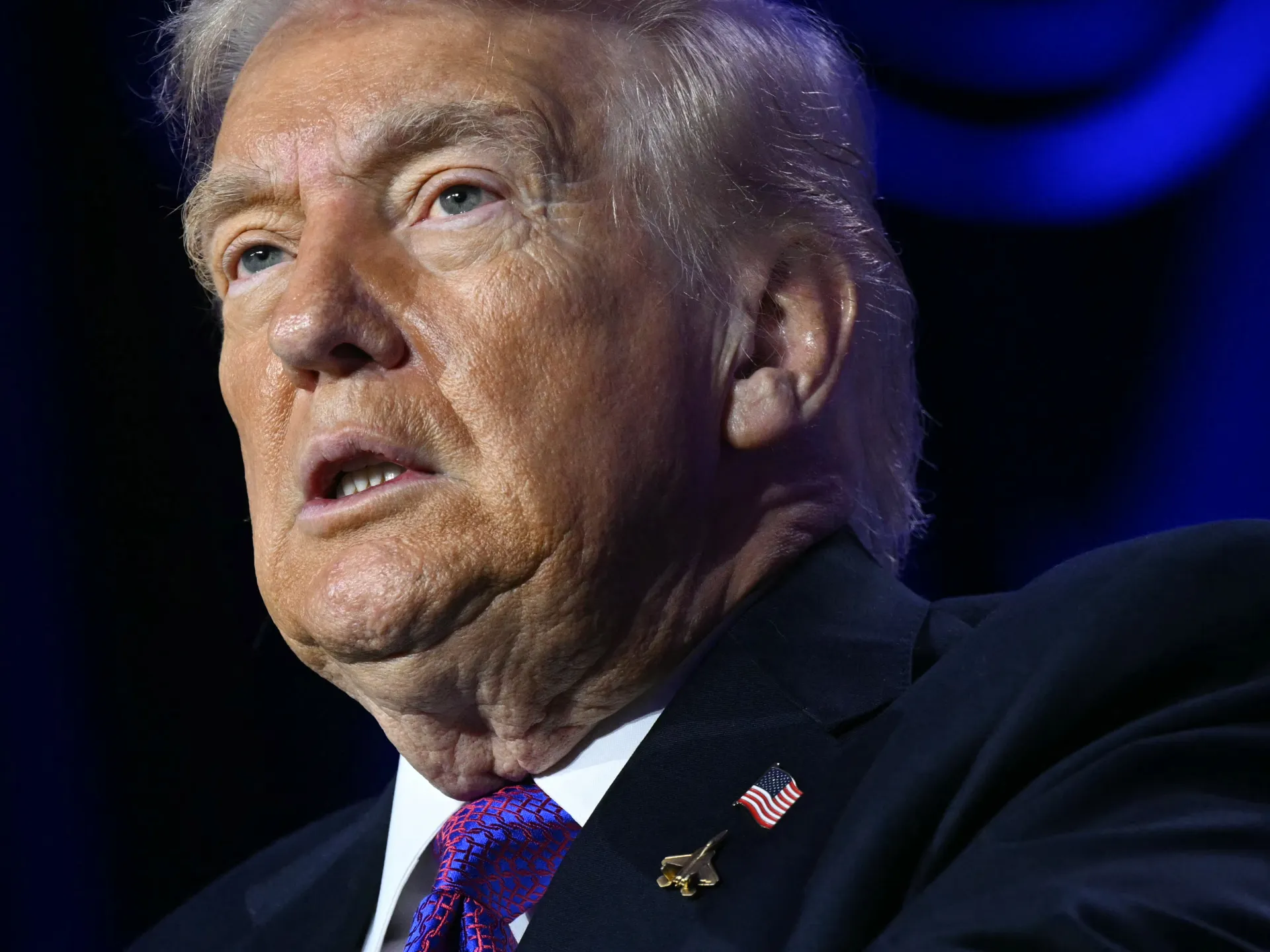Republicans condemn racist Trump video post depicting Obamas as apes | Donald Trump News
United States President Donald Trump has again stoked outrage over his online posts, this time for sharing a video depicting former President Barack Obama and his wife, Michelle Obama, as apes.
The reposted clip came as part of a flurry of late-night messages on Trump’s Truth Social account.
Recommended Stories
list of 3 itemsend of list
By midday on Friday, the video had been removed — but not after an outpouring of bipartisan condemnation, slamming the post as blatantly racist.
In a post on the social media platform X, Tim Scott, the only Black Republican currently serving in the Senate, said he was “praying” that the video “was fake because it’s the most racist thing I’ve seen out of this White House”.
“The president should remove it,” he added.
Another Republican, Representative Mike Lawler, also called on Trump to delete the post, calling it “incredibly offensive — whether intentional or a mistake”.
Democrats, meanwhile, sought to tie the video to Trump’s history of insensitive remarks, and they called on Republicans to condemn this latest episode.
“President Obama and Michelle Obama are brilliant, compassionate and patriotic Americans. They represent the best of this country,” said Hakeem Jeffries, the top Democrat in the US House of Representatives.
“Donald Trump is a vile, unhinged and malignant bottom feeder. Why are GOP leaders like John Thune continuing to stand by this sick individual?”
The White House, for its part, initially defended the post as an “internet meme”. Later, it said the post had been shared “erroneously” by a White House staffer, not by the president.
Stoking outrage
Trump has long had an adversarial relationship with the Obamas, who became the first Black couple in US history to serve as president and first lady.
One of Trump’s first forays into national politics came during Barack Obama’s 2012 re-election campaign, when he pushed false claims that the Democratic leader had not been born in the US.
Trump, a Republican, is known to be a prolific social media user, and he co-founded Truth Social in February 2022 after being temporarily banned from other major social media sites.
There, he often reposts memes and videos generated through artificial intelligence that promote his public image and political platform.
The video that includes the Obamas came at 11:44pm Eastern US time (04:44 GMT) as part of a series of shared clips.
The image of the Obamas as apes comes about 59 seconds into a video that only lasts one minute and two seconds.
It appears dropped into a documentary-style segment that pushes baseless claims that the 2020 presidential election was marred by malfeasance involving electronic voting machines. Trump has repeatedly spread lies denying his loss to Democrat Joe Biden in that race.
The video, which bears the watermark of a site called Patriot News Outlet, briefly pairs the doctored image of the Obamas with the 1961 song The Lion Sleeps Tonight.
Critics have regularly accused Trump of intentionally stoking outrage to distract from politically damaging domestic issues, including the recent release of millions of files related to disgraced financier and convicted sex offender Jeffrey Epstein. Trump’s name has featured in those files.
Midterms ahead
Some Republicans, like Lawler in New York, also face punishing re-election campaigns ahead as the country nears its November midterm elections.
Trump has warned that, if Republicans lose control of Congress, he could face new impeachment proceedings.
Initially, in the hours after the video was reposted on Trump’s Truth Social account, the White House dismissed the backlash as overblown.
White House spokesperson Karoline Leavitt told several US news outlets that the image of the Obamas was excerpted from an “internet meme video depicting President Trump as the King of the Jungle and Democrats as characters from ‘The Lion King’”, a 1994 animated feature film.
“Please stop the fake outrage and report on something today that actually matters to the American public,” she said in a statement to ABC News.
But that explanation did not dampen the bipartisan push for Trump to renounce the video.
Republican Senator Pete Ricketts of Nebraska was also among those calling for the post to be taken down.
“Even if this was a Lion King meme, a reasonable person sees the racist context to this,” Ricketts wrote on X.
“The White House should do what anyone does when they make a mistake: remove this and apologize.”
Democrats, meanwhile, questioned Trump’s fitness for the presidency. In a social media post, Representative Raja Krishnamoorthi drew a line between the video and the long history of racist depictions of Black people in the US.
He pointed to similarly dehumanising illustrations that were shared during the Jim Crow era, a period from 1865 to the mid-20th century when Black people faced segregation and unequal rights following the abolishment of slavery.
“This kind of Jim Crow-style dehumanisation is pathetic and a disgrace to the office,” he wrote.

